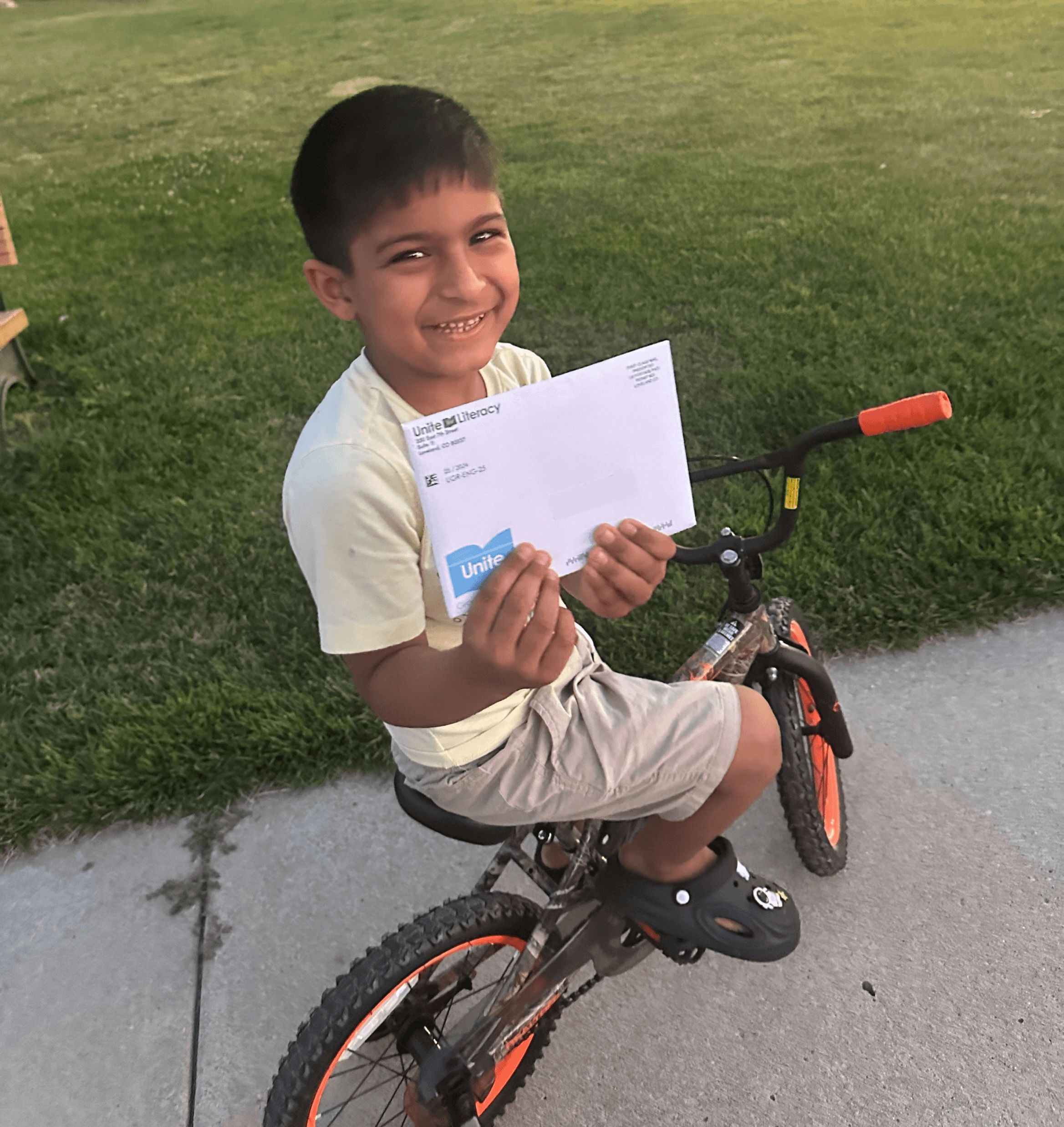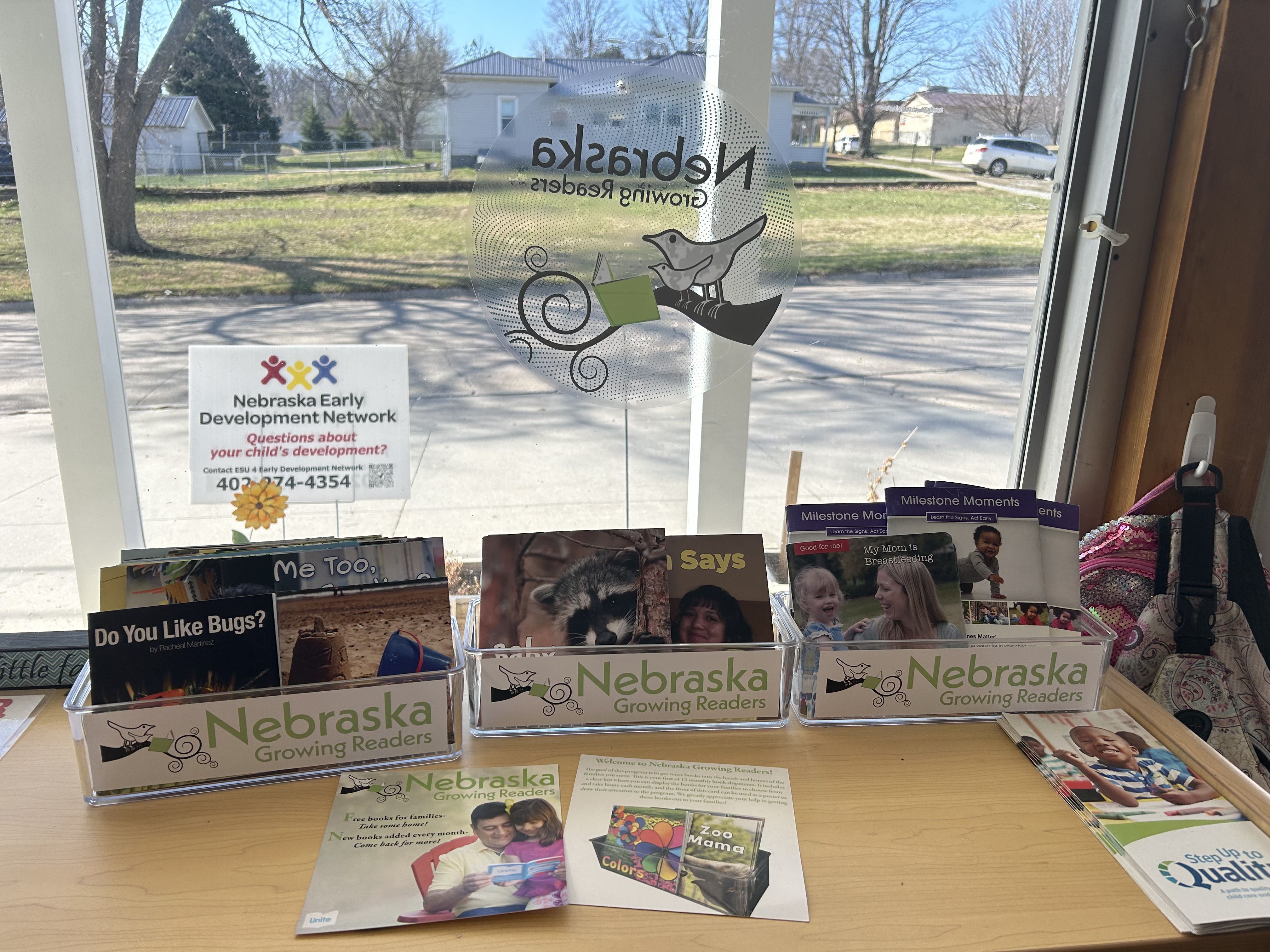
Literacy is a ritual in the Mohmand household. Fariha Mohmand is an Afghan refugee who was an instructor for company management instruction and a university professor. She moved here to live with her “American Family,” a university professor named David Wilson, who has always given her children books. She says, “literacy is the door to teaching my kids the importance of education.” That’s why when she saw Nebraska Growing Readers offer to send her son Yousof free books as he prepared to enter kindergarten in the fall, she jumped at the opportunity.
Nebraska Growing Readers, an initiative of Nebraska Children and Families Foundation, began in October of 2023 and, within six months, had already signed up 1,000 early childhood educators to receive free books to be distributed for free to their families. The program is a partnership between Nebraska Children, Unite for Literacy, Nebraska Department of Education, and the Statewide Family Engagement Center of Nebraska, and is based on data that shows children who have over 100 books in their home show significantly higher reading scores (National Assessment of Educational Progress). The idea then is to help families build home libraries for their children and to promote shared book reading.
The initial success of the initiative led to the Incoming Kindergarten program where families whose children are entering kindergarten in the fall of 2024 could receive free weekly mailings of 4 books for up to 25 weeks. The program, which began in mid-May, was an immediate success, reaching its goal of 3,000 registrations within the first 6 weeks. It currently stands at 3,072 registrations and has a waiting list.
Nebraska Growing Readers is working with schools and families from Omaha, Lincoln, Schuyler and Hastings to collect data which can be used to help evaluate the impact of this program. For families that agree to participate, schools will be asked to provide literacy assessment data, parents will be asked to complete a survey, and children will be asked to share their experiences too. Nebraska Growing Readers will share the results of that evaluation in 2025.
Mohmand encountered the Incoming Kindergarten program at Educare Lincoln where Yousof and her younger son Soliman attend and registered her older boy for the program. But because both of her boys love books, she created a new ritual. She told them they were both registered and, because they argued over whose turn it was, she alternated who was the recipient when the books arrived each week. Whoever has the turn gets to carry the key to the mailbox, gets to open it, gets to hold and open the package of books, and is allowed to read all the books first. Mohmand says that she could tell from the very first week the mailings were boosting her boys’ personalities. “They feel, ‘I am so important that someone is sending me a package,’” she says.
Mohmand, who currently works as an interpreter for the Health Department, speaks Farsi, Pashto, and Dari. She reads to her boys every night and has begun repeating each page of the NGR stories in her native Dari. She laughs and says that sometimes, depending on their mood, they will ask for her husband’s Pashto instead. When she changes languages, Mohmand says she can see the way the boys grab the subject from the pictures. She says that even though her sons are not yet reading, they point to the pictures and then the words and one of the boys “will say something related to the sentence on the page.” She says that as a professor with 12 years of experience developing curriculums, she sees this as the early signs of literacy.
Mohmand also appreciates the social-emotional messages of many of the NGR books. She referred to a book on being organized and helpful and said that when she asked Yousof what was happening, he turned the pages and said, “he’s cleaning his room, he’s making his bed.” She said it was clear that he was starting to associate words with the actions of the books, but also, she added, he was being impacted by the story and incorporating the habits it taught. Another example she offered was a book on being nice to each other that she often cites when her boys argue.
While we await official data on the impact of the Incoming Kindergarten program, anecdotal evidence such as Mohmand’s story suggests that the program is promoting literacy among Nebraska’s youngest, is teaching social-emotional lessons, and is getting children excited about books. Nebraska Growing Readers thanks all the school districts who have supported the program and expresses further gratitude to the early childhood professionals who have signed on and spread the word. They are excited to take the next step in enhancing the literary landscape of the state when they introduce Community Book Gardens this fall.

